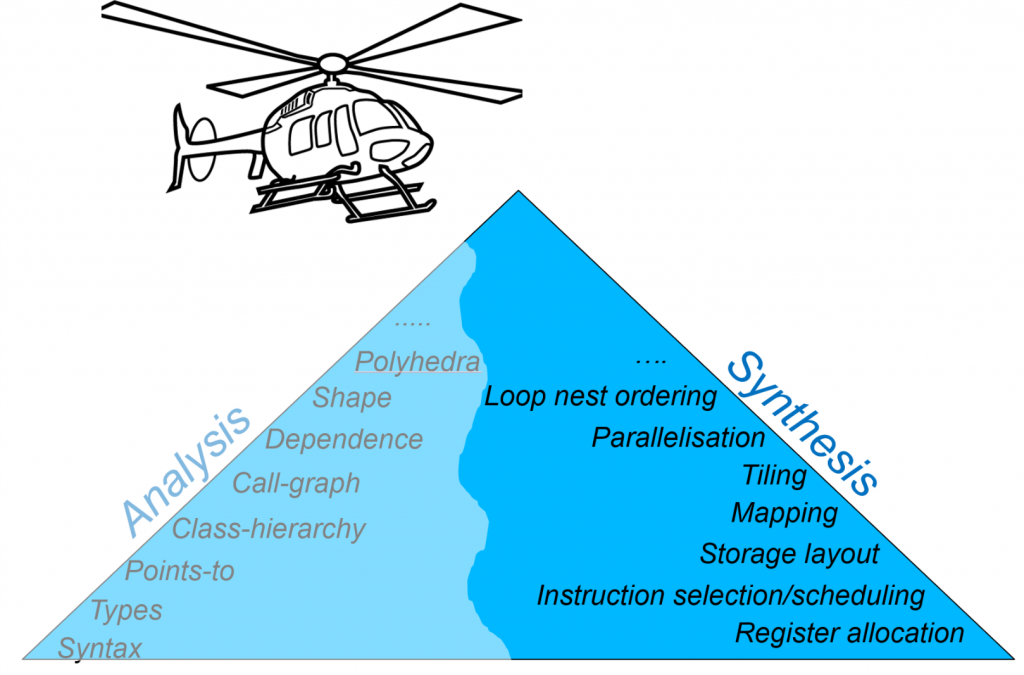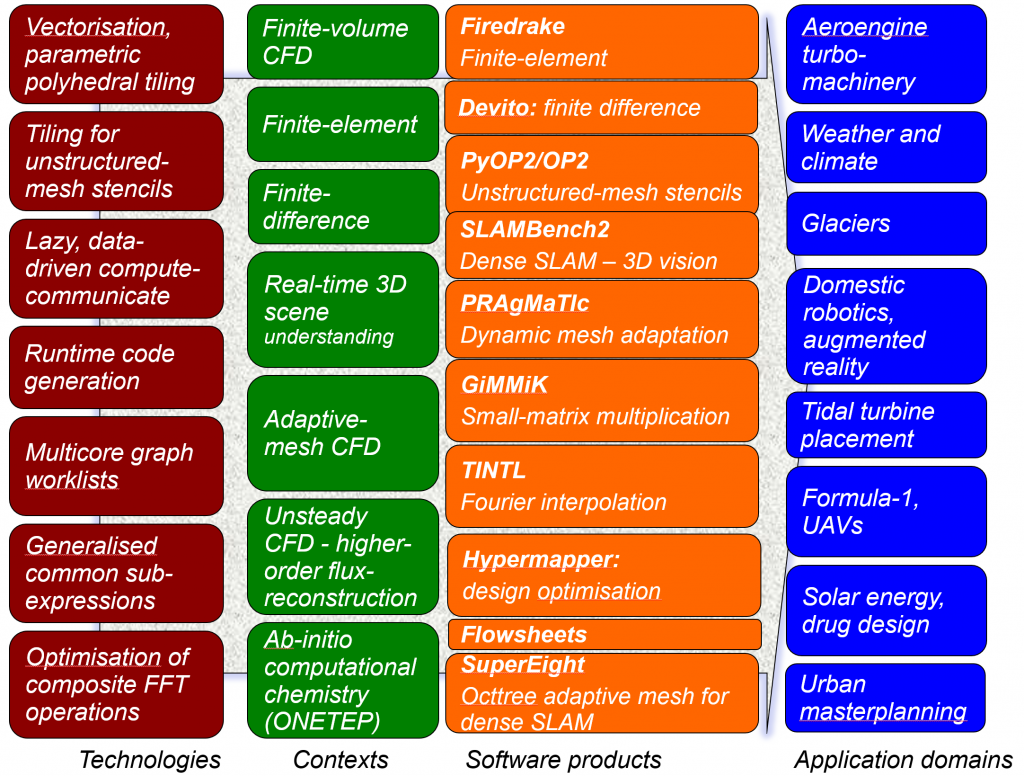
Imperial’s Software Performance Optimisation research group, led by Prof Paul H J Kelly, is primarily focused on research in compiler technology – but with a specific emphasis on domain-specific performance optimisations.

We deliver optimisation technologies for domain-specific application contexts, in the form of software tools (usually open-source). These tools are used in a huge diversity of application areas.
To do so, we engage deeply with application specialists – spanning computational science, numerical methods, computer vision, robotics, deep learning and data analytics.



